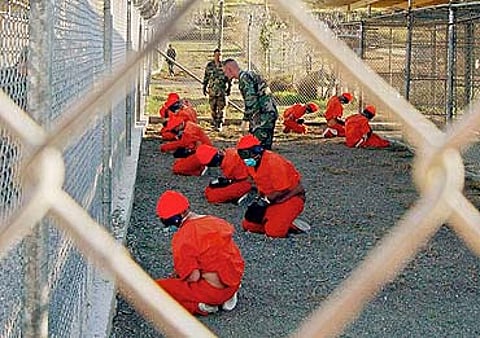Mohandas, In Modern Times
A war on terrorism, for Gandhi, would be the same terrorism

But actually achieving a peaceful resolution isn't so simple. Before a jehadi can be convinced that the Americans and Europeans are no longer interested in meddling in Middle East politics, significant changes will have to take place in the political culture of Middle East countries and dramatic reversals will have to occur in the West's military and economic role in the region. A solution in Kashmir will require an enormously delicate set of negotiations. In the meantime, small steps can make a large difference.
Taking a stand against violent retaliation is a step in the right direction. As Gandhi remarked to the Indian activists in London, violence begets violence. Proclaiming a "war on terrorism" is, from Gandhi's point of view, tantamount to sinking to the terrorists' level. The very idea of war suggests an absolutism of conflict where reason and negotiation have no place, and where opponents are subhuman enemies. Though violent extremists are indeed difficult opponents, they often act with a passion that may be misguided but in its own frame of reference morally justified.
Moreover, Gandhi was mindful of the way that responding to terrorism might appear to those watching on the sidelines. The struggle for public support could shift either way, and for this reason it would be a tragic error—and perhaps a self-fulfilling prophecy—to regard everyone who is nominally on the other side as enemies. Islamophophia, for instance, can force moderate Muslims into the arms of a more extreme Islamic position.
Gandhi urged Dhingra be treated with caution but also with respect, just as any other suspect in a crime would be. Torture, Gandhi thought, is ineffective not just because it rarely produces useful information but also because it corrupts the moral character of a society allowing its use. Perhaps Gandhi's most enduring lesson is that the moral character of a society is shaped by the way it responds to crisis and catastrophe.
(Mark Juergensmeyer is professor of sociology and director of the Orfalea Center for Global and International Studies, University of California, Santa Barbara. His many books includeGandhi's Way and Terror in the Mind of God.)
Tags